Khruangbin’s Laura Lee on visual identity, Zen Guitar and why she still plays her first bass
The Khruangbin bassist/vocalist unpacks the Texan trio’s musical dynamic and explains why she wants their audience to “feel like they got slapped in the face in the best way possible”
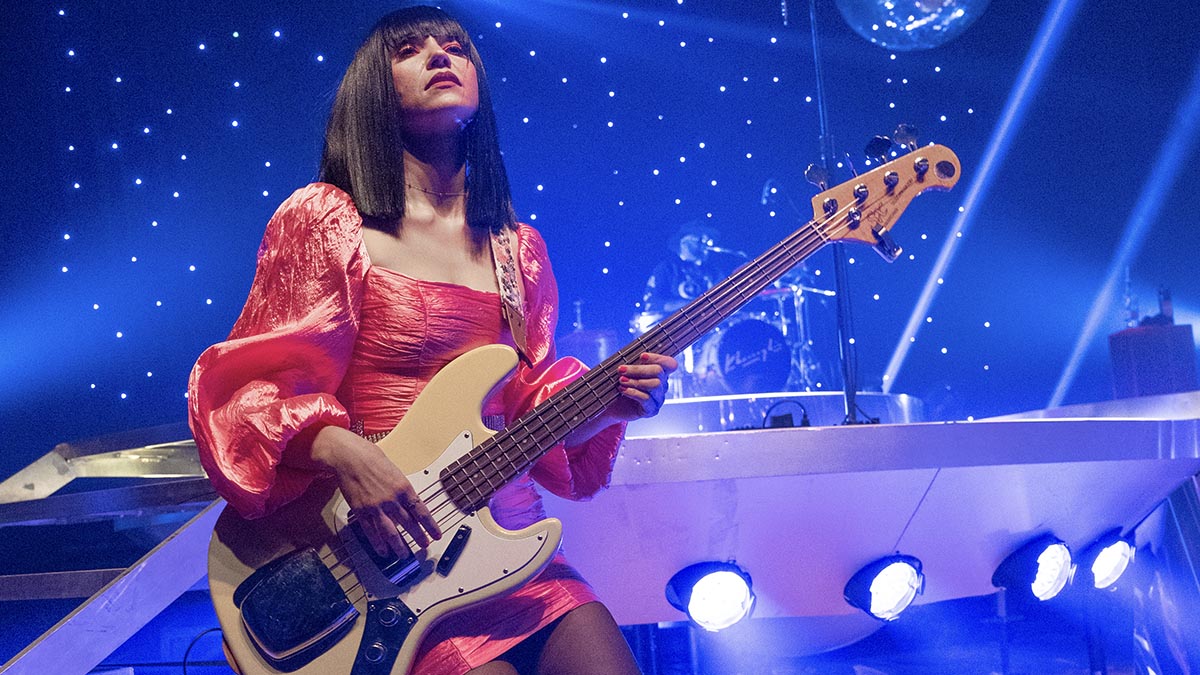
The hottest new band in years is Khruangbin, the Texas-based trio whose music stretches from dub via country to cinematic soundscapes and beyond. Anchoring the band philosophically and musically, bassist Laura Lee has wisdom for us all about making a band work while basing it on a solid set of ethics.
Let’s face it, you’d never expect a mostly instrumental trio who play wilfully uncommercial music to enjoy millions of Spotify plays, over 20 million views of a live stream, slots at major festivals, and regular shows at large venues.
The Texan three-piece Khruangbin have done just that, though, earning props from artists such as Flea – a huge fan of their bass player. What’s more, Khruangbin are a real band.
My main bass is an SX J-Bass that I got in college. Mark got it for me and changed the pickups to DiMarzio humbuckers
These days, we live in a world where solo artists reign supreme. If you play bass guitar, you’ll likely be a side player, hired gun, or weekend warrior. The notion of playing music and going on adventures with your best friends will quickly dissipate, replaced by the realization that what we bring to the table is limited and dictated by whoever hired us.
As we learn to accept this, we’ll stand under bright stage lights while simultaneously living in the shadows. Unless, of course, you’re Laura Lee, aka ‘Leezy’. She’s one of the lucky ones. She’s got herself a band.
Hailing from Houston, Texas, the musical trio known as Khruangbin has spent the past decade making records, playing sold-out shows, and reminding the world of what it’s like to be in a band.
The brainchild of guitarist Mark Speer, drummer ‘DJ’ Johnson Jr., and bassist Lee, Khruangbin’s music is built from the bottom up. Steady drum beats, trance-inducing bass-lines and melodic guitar riffs reflect diverse musical influences from around the world.
Get The Pick Newsletter
All the latest guitar news, interviews, lessons, reviews, deals and more, direct to your inbox!
Their live show features neon lighting and giant disco balls, a drum kit nestled in an elevated spaceship, and three distinctive characters who move about the stage while the audience sways back and forth. It’s a carefully curated scene that speaks to both the aural and visual aesthetic. Believe it or not, when Leezy steps on stage, she’s still using her first bass.
“My main bass is an SX J-Bass that I got in college. Mark got it for me and changed the pickups to DiMarzio humbuckers. It’s a pretty standard knock-off Jazz and the headstock still looks like a Fender headstock.
“My back-up bass is a knock-off Hofner Beatles bass, a hollow-body short scale. If my main bass fails me for whatever reason, the backup is actually easier to play than my main one.”
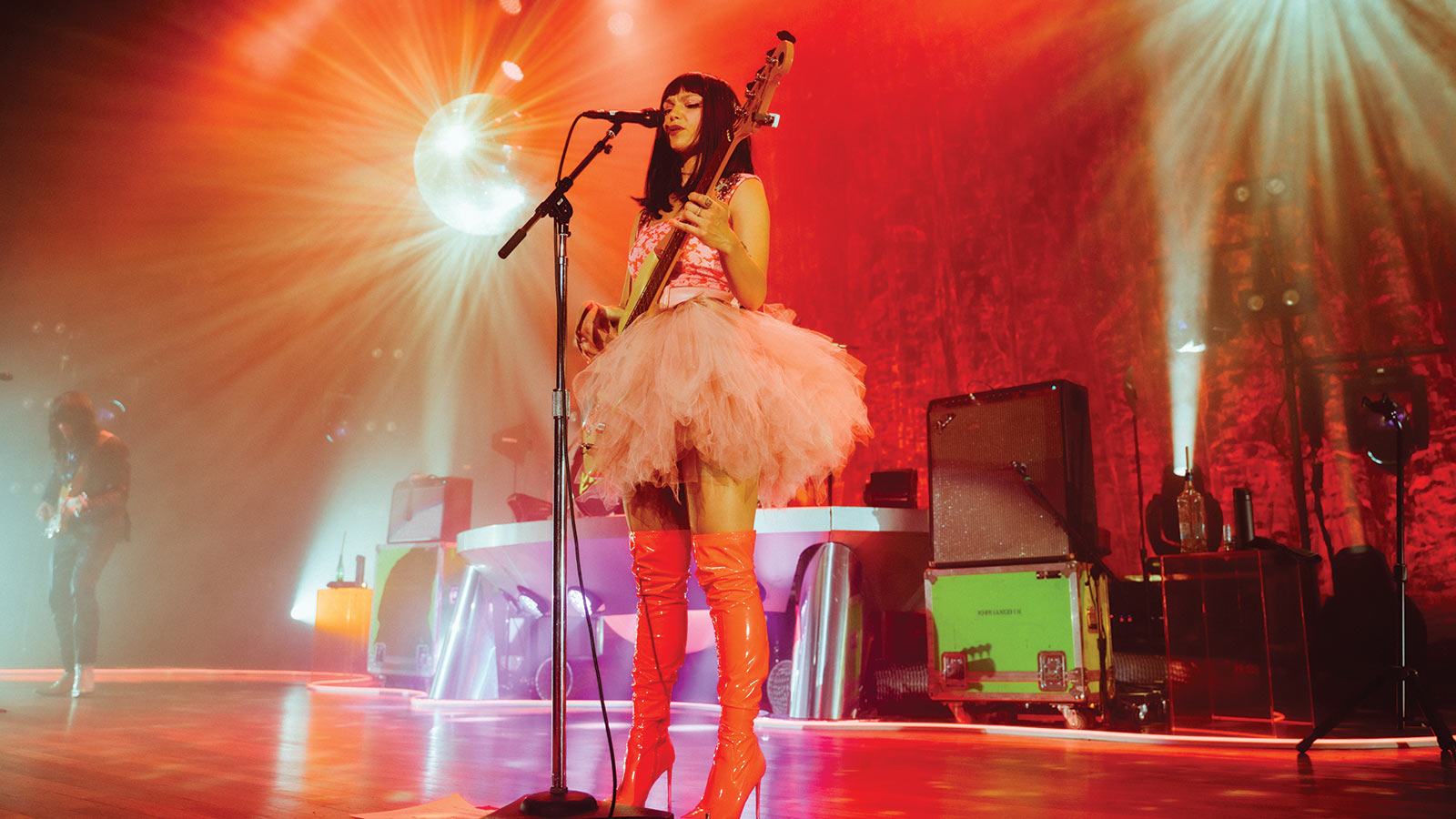
Trio tone
Since the studio may require something different, Lee might grab something a bit unconventional.
A lot of the structure comes from this evolving, improvisational place. You have to let the song do what it wants to do
“I also have a Fender Bass VI, which is kind of an unloved, under-appreciated bass,” she says. “That bass has a chunky midrange sound that I really like. My favorite bass tone is from the era of Serge Gainsbourg. Whoever was playing bass on the Jane Birkin/Serge Gainsbourg LP [1969] had a very peanut-buttery sounding tone.
“I’ve been trying to get that tone my whole life, and I do my best on the J-Bass. I noticed that tone when I played a VI for the first time. I also might play a P-Bass in the studio if I want that earthquakey boom – and I play flatwound strings and haven’t changed them in 12 years. That’s my thing!”
Playing in a trio can create certain challenges from a tone standpoint, so amps, effects and DIs come into play.
“On stage, I play through a Fender Bassman 10, which is more of a midrange-sounding amp. It’s not usually used for bass, and I would always confuse sound engineers when we started out because I would ask them to cut the lows.
“I also use the Simplifier Bass Station. I like to hear the high end of my fingers on stage, and it gives more definition. Because there’s only three of us, the interplay between the bass and guitar is so important.
“If the sound of my bass is too muddy or too big, you can’t hear the interplay as much. I have a compressor that we’ve switched up a few times because I tend to play really hard when I’m playing live. I go through the Motown DI and I bring that in the studio with me as well.”
Khruangbin puts a lot of thought into the creation of their live performance, especially when it comes to improvising and creating dynamic moments.
“We start with the framework of crafting a show,” Lee explains. “There are certain songs that have stretchable parts, where one or all of us could improvise, and it’s usually Mark who does that. Within the three of us, he’s really the singer, so to speak, with his guitar. DJ and I spend a lot of time building his improvisations up and down, depending on the energy. It’s improvisational but more supportive.”
In between songs like White Gloves or Maria Tambièn, the band strings together eclectic medleys comprised of classic pop themes and hip-hop grooves.
“When we play medleys, they’re very specific and crafted, but the improvisation will sometimes come during soundcheck when one of us plays a song and we learn how to insert it. So, in a show, we might be playing it for the first or second time.
“A lot of the structure comes from this evolving, breathing, and sometimes improvisational place. You have to let the song do what it wants to do – and you know what that is when you’re in it.”
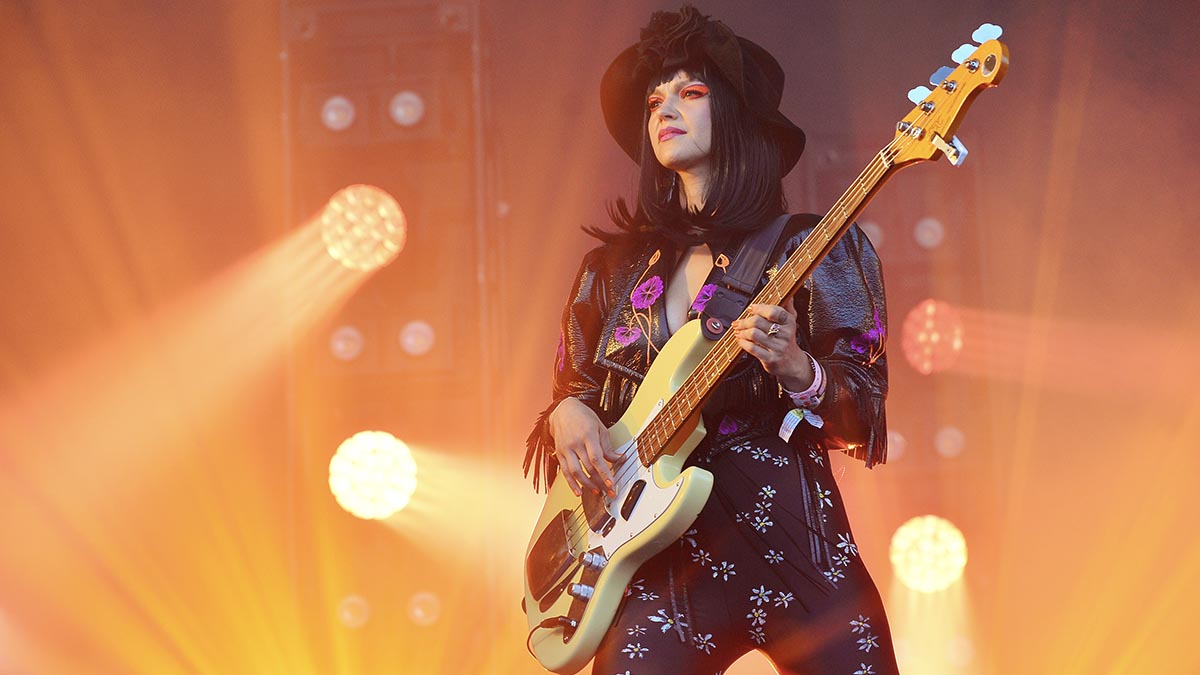
When asked about the audience, Lee has high hopes for what people take away from a show.
“I hope people feel like they got slapped in the face in the best way possible. I really want to be impactful so they really feel something. Every song we write conveys some sort of emotion, and we design the sets to build up and leave you on a high. The band itself is a representation of people coming together to make music.
Our shows have people from different walks of life that come together to experience 90-plus minutes of music, and I hope that they feel the power of what that means
“Our shows have people from different walks of life that come together to experience 90-plus minutes of music, and I hope that they feel the power of what that means when they leave. I hope they get so sucked into the show that they experience some sort of out-of-body rollercoaster emotion and leave with a bunch of other humans that felt the same thing.”
Surely that would happen after performing at Nashville’s Ryman Auditorium, also known as the ‘Mother Church of Country Music’. Lee chimes in, saying, “Yeah, because a show is like church. It’s about the same amount of time, it’s people coming together who believe in the same thing to some degree, and hopefully they leave feeling lifted. If the Ryman is church, then I’m hoping to have a spiritual experience.”
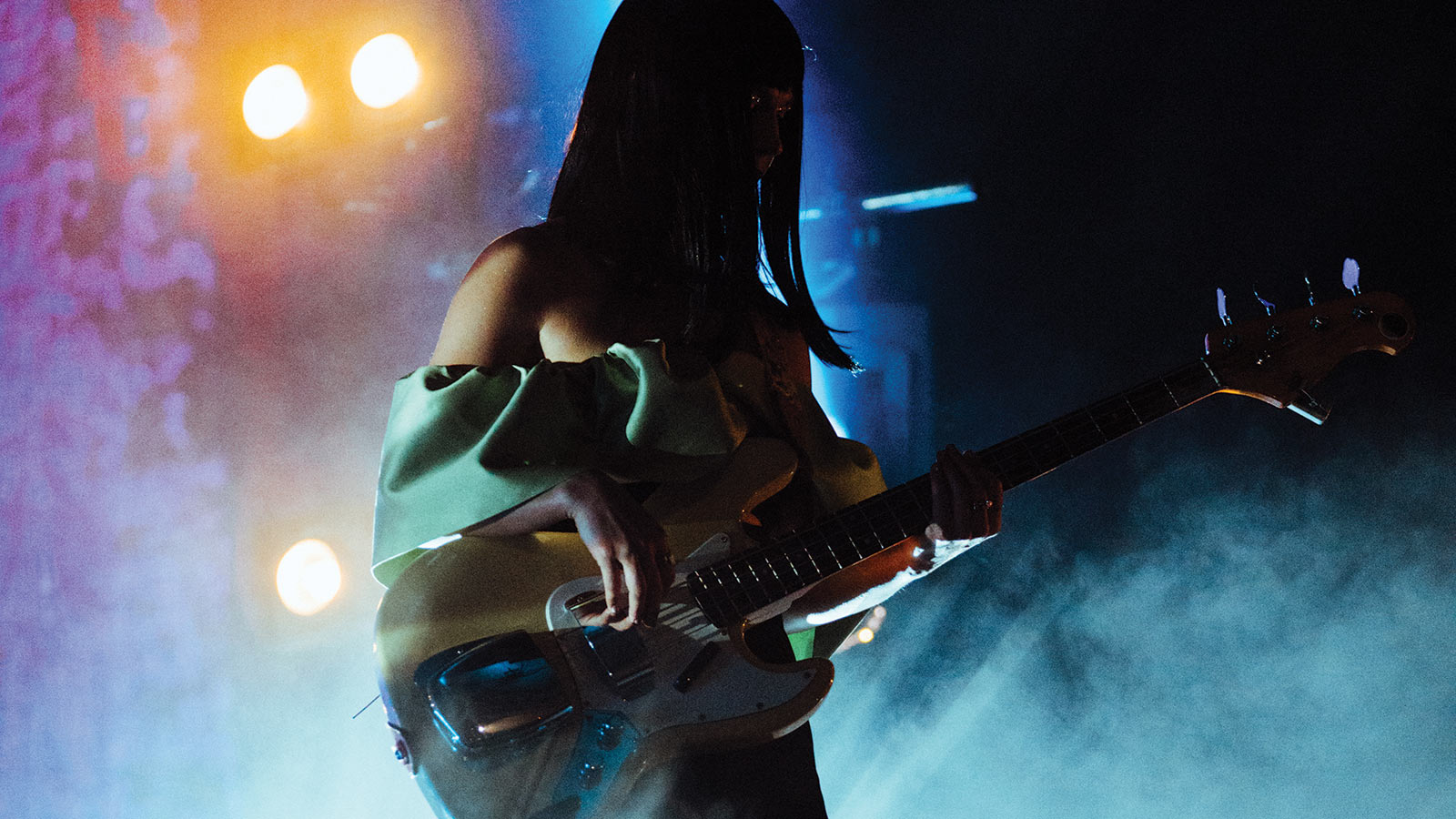
Zen guitar
Recording is quite an ordeal for the band. They convert a dirt floor barn in the middle of nowhere into a fully functioning recording studio.
Mark gave me the book Zen Guitar, which I highly recommend to anybody – it’s a really beautiful way to think about any hobby or creative process
“It’s a mission,” she says. “We don’t just pop over to the barn and play – it’s a pilgrimage with three U-Hauls. We bring gobos [acoustic panels] to try to have some isolation, but we’re never going to get really isolated sound: We like the bleed and what the bleed does. It’s magical out there, and you’re away from everything. There’s barely phone service or wi-fi, so it’s a place where we can really dig in and get deep into our heads.
“When we get there, we might have a few ideas or bass-lines crafted, but not fully-formed songs. We use the isolation and the time together to be able to build. It’s just simplicity and using limitations to our advantage. The barn is so much effort, and there are difficult natural elements that come into play, but it does whittle things down to bass, drums, guitar, and space.”
This method certainly stimulates the creative process, but Lee brings something particularly special to the table.
“My contribution is my naivety, in a really beautiful way. When we first started playing, I was really hard on myself and really nervous, and I still feel like an imposter most of the time.
“Mark and DJ have been playing since they were tiny and they know their instruments so much more in-depth than I do. On the flipside, I come at it without worrying about all of the stuff that you think about if you’re someone that knows everything.
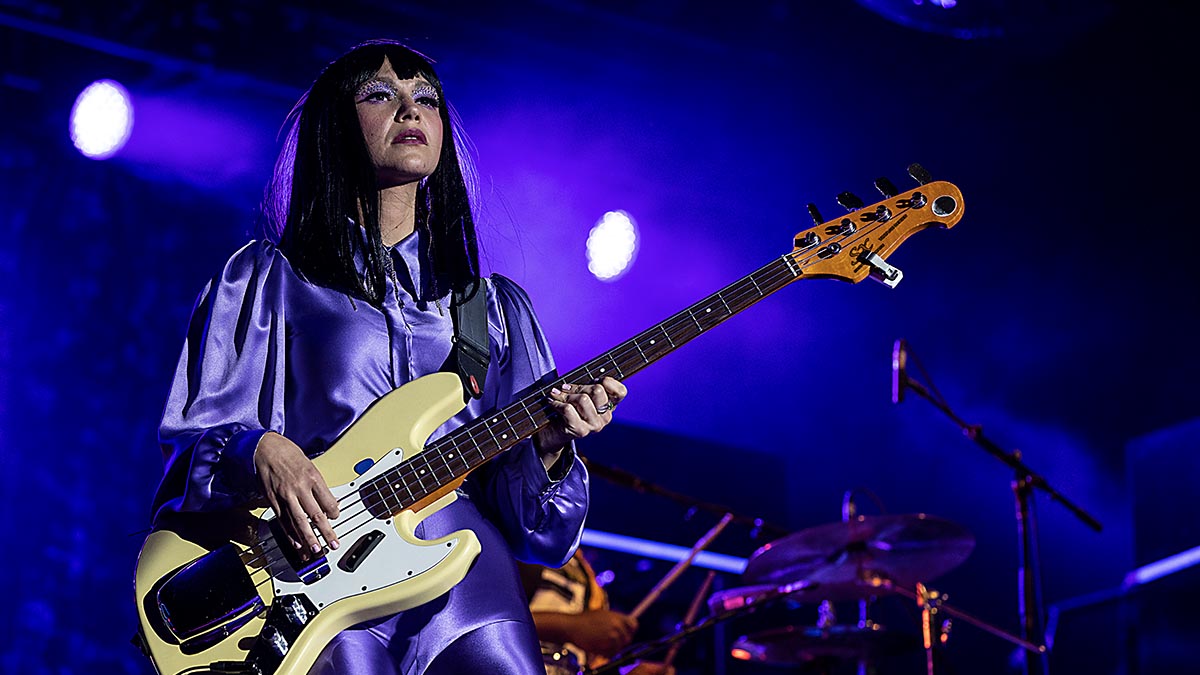
“Mark gave me the book Zen Guitar [by Philip Toshio Sudo], which I highly recommend to anybody, even if you don’t play guitar. It’s a really beautiful way to think about any hobby or creative process. Your white belt is just as important as your black belt.
I think my contribution is the playfulness of a child. I’m really proud of that now, and it used to be something that I was really insecure about
“You’re not thinking outside of the box, you’re just thinking – but to an advanced player, it might feel like you’re thinking outside of the box, because it might be simpler than something they could ever think of. Mark will look at the guitar and see infinite possibilities. I still look at the bass without that.
“I’m still going to pentatonics, because that’s what feels good to me. When I play around with little variations outside of that, it’s me expanding rather than feeling like I know the world. I’m still discovering the world. So, I think my contribution is the playfulness of a child. I’m really proud of that now, and it used to be something that I was really insecure about. Now, that’s me – I’m going to be the person that doesn’t know everything and I’ll bring something awesome because I don’t know.”
Taking time to experiment and explore is the hallmark of how they compose new material.
“Mark will find snippets of things to bring into the recording process,” Laura explains. “He has me play to a drum loop for hours and I usually go somewhere by myself, without anybody watching, so I don’t have the pressure of someone seeing what I’m coming up with.
“He makes me promise that I’m not going to edit it or delete anything that I don’t like, because they might like them. And DJ loves my mistakes; he says that I make the greatest mistakes in the world, and these mistakes stay on the record.”
Laura is keenly aware of how unique it is to feel comfortable, accepted, and supported within the context of the band.
“In Zen Guitar, there’s a chapter about forming a band and the relationships and dynamics of it. Sometimes it works and sometimes it doesn’t. You can have a supergroup of all equally amazing, talented humans and it just does not work. It was very clear to me early on that the three of us just really worked.
“We were friends for so long before we started the band, and our friendship existed outside of all other friendships. We didn’t hang out all together with groups of people, it was just the three of us. Our friendship leads the whole thing; it’s like we’re all married.
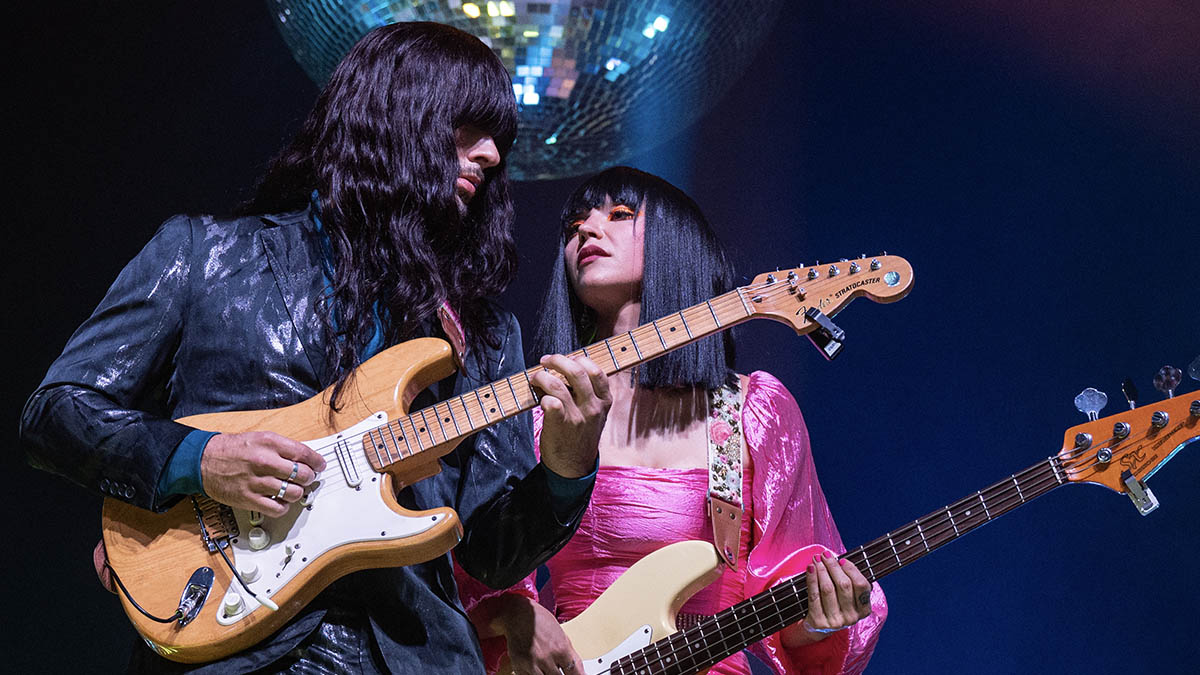
“It makes me emotional thinking about it, because I realize, especially when I see festival line-ups that we’re on, that there are no more bands. There are solo artists and they tour with a band, but the dynamic of what a band can represent for people can be so much greater. Still, it’s a money-driven society and it’s expensive to be in a band.
“It’s much cheaper to be a DJ or a solo artist, and it’s also much less complicated. When we’re working with labels, for example, we have to reach an opinion that all three of us agree with. As a solo artist, it’s much easier to find that thing.
“For live performance, it’s much easier to have a DJ come and play perfect songs with no mistakes, and they only travel with a USB stick or a bag of records – not with amps, gear, a front of house person, a monitor person, and everything that it takes to man a working operation.
“I’m a real champion and a believer in it. What you can create in a band is so much bigger than you are – and what you receive in the audience from watching a band is really powerful.
“Plus, the three of us each have our different, individual things that we bring to the table. You often don’t realize that when you start a band, it’s also a business, and you have to run it and manage a team. It’s a big thing, and each of us play our parts.”
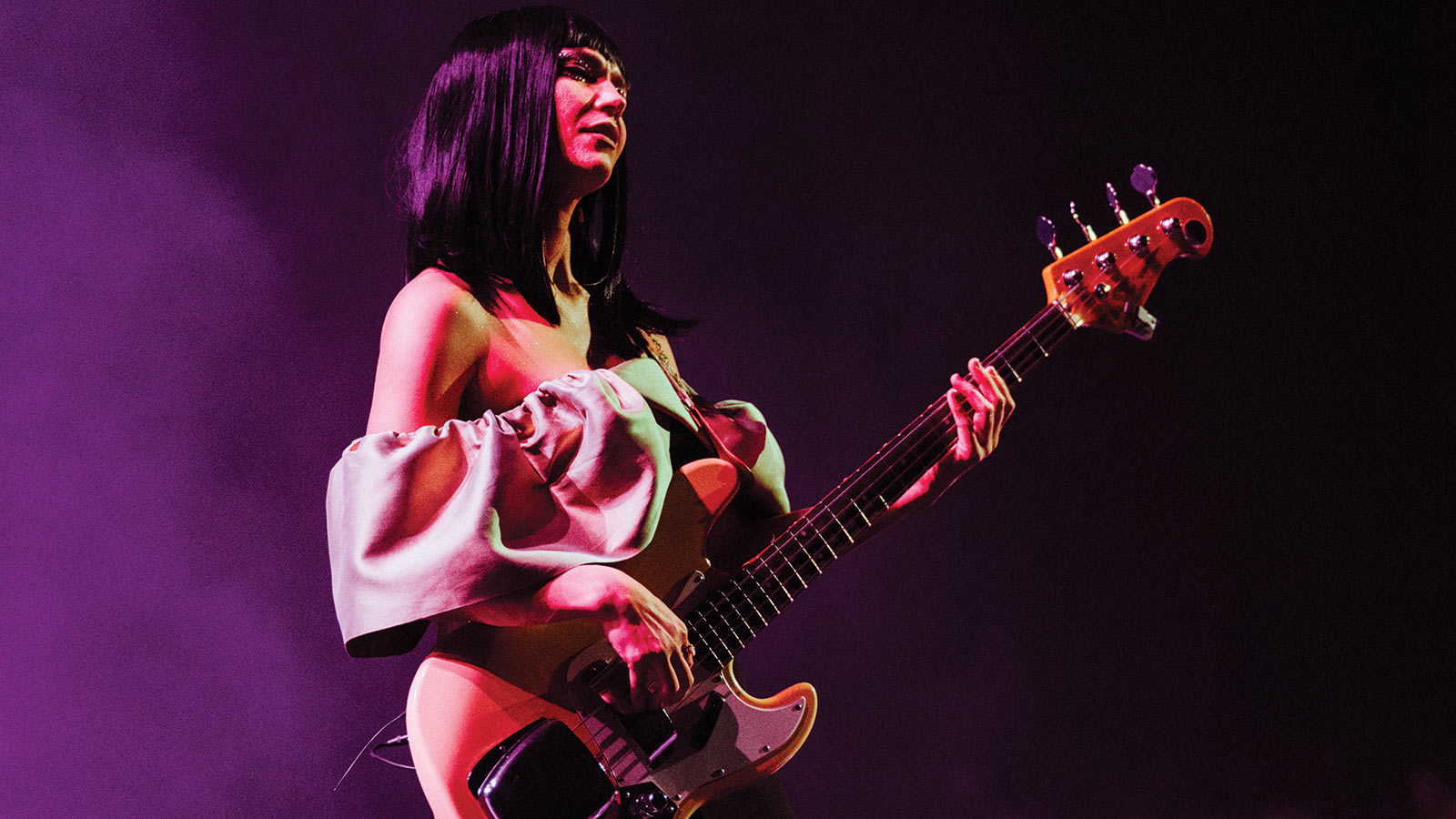
A visual identity
Not just a commander of the groove, Laura takes pride in curating the visual aesthetic of the band.
“It’s so weird, because I went to school for architecture and then switched to art history, and I worked in museums for a while, but my goal was to work in curation, more than anything else. I find all of the poster artists and it’s one of my personal projects within the band.
I want to feel something from any kind of art. It’s not about the artist having to have a specific style or working in a genre, it’s about asking, ‘Does it move me?’
“I spend a lot of time searching before I go to bed, usually on Instagram or visual blogs that I follow, and I’ll hound artists that speak to me in some way. I give them the brief of the show poster: I usually want Khruangbin as our characters to be represented. We have such strong visual identity as characters, and that has been an important aspect of our show and aesthetic.
“Even without the posters, what we look like doesn’t look like any other band. The posters also try to reference the city or venue we’re playing, so that there’s a shout-out to where we are. I think that even though every poster we have is from a different artist, you always know it’s a Khruangbin poster, because we’ve created a certain universe.”
She also brings a lot to the team in terms of fashion and curating outfits.
“It’s in the same space as the poster art. I see myself in a position to champion young artists that might not have a name out there. I think with designers, it’s the same. I tend to wear super-independent, young designers.
“Going back to Zen Guitar, in the way that you’re following your creative path, the younger players or designers tend to be a little wilder because they haven’t gotten to the point where they’re pleasing people for their business. So, I’m a big supporter of ‘How can we lift up as many people as we can?’ with our position as Khruangbin.”
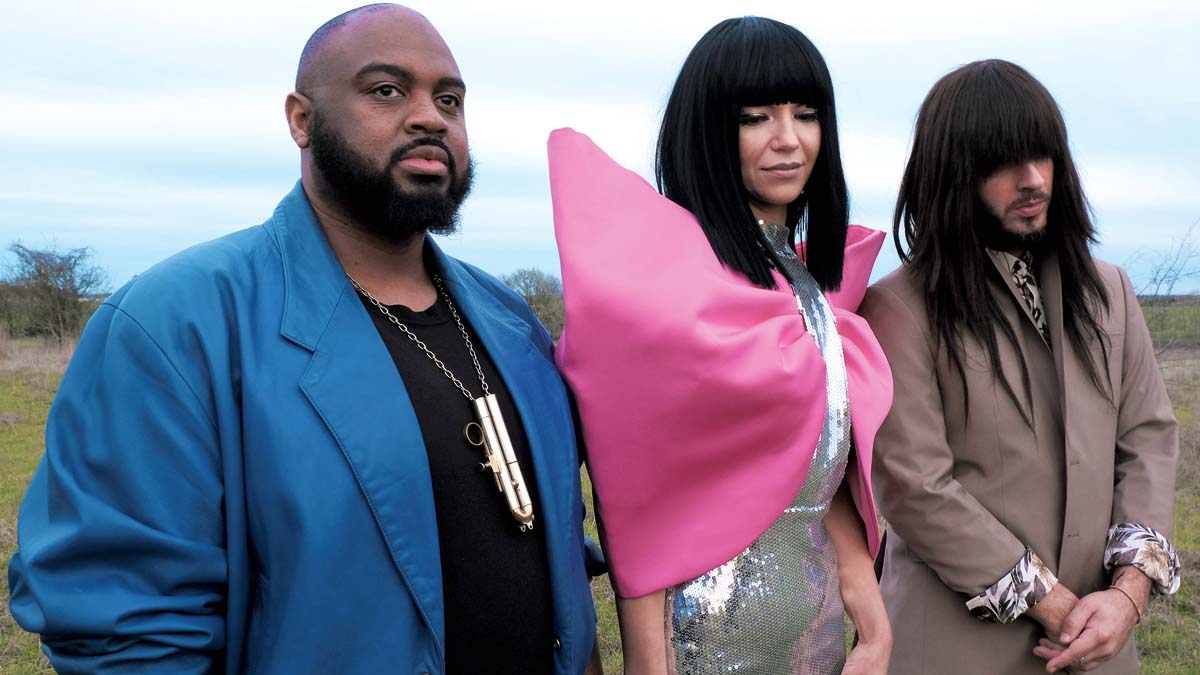
One thing is for sure – Lee truly believes in creating the best possible art, and is on a mission to do so.
“At the end of the day, I want to feel something from any kind of art. It’s not about the artist having to have a specific style or working in a genre, it’s about asking, ‘Does it move me?’ There are 12 notes – and it’s about re-contextualizing them in a way that makes them feel different.”
- Mordechai is out now via Dead Oceans.
“I asked him to get me four bass strings because I only had a $29 guitar from Sears”: Bootsy Collins is one of the all-time bass greats, but he started out on guitar. Here’s the sole reason why he switched
“I got that bass for $50 off this coke dealer. I don’t know what Jaco did to it, but he totally messed up the insides!” How Cro-Mags’ Harley Flanagan went from buying a Jaco Pastorius bass on the street to fronting one of hardcore’s most influential bands











![A black-and-white action shot of Sergeant Thunderhoof perform live: [from left] Mark Sayer, Dan Flitcroft, Jim Camp and Josh Gallop](https://cdn.mos.cms.futurecdn.net/am3UhJbsxAE239XRRZ8zC8.jpg)








